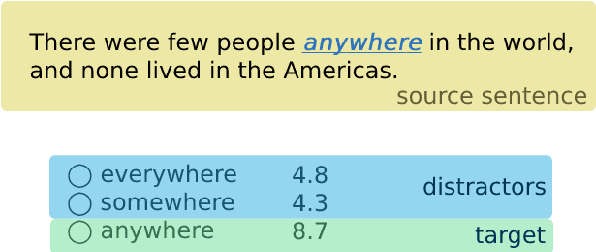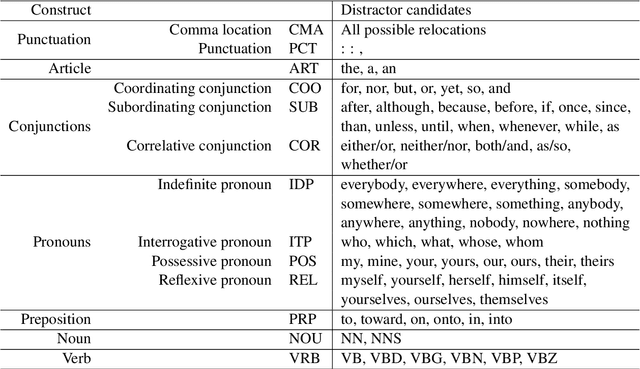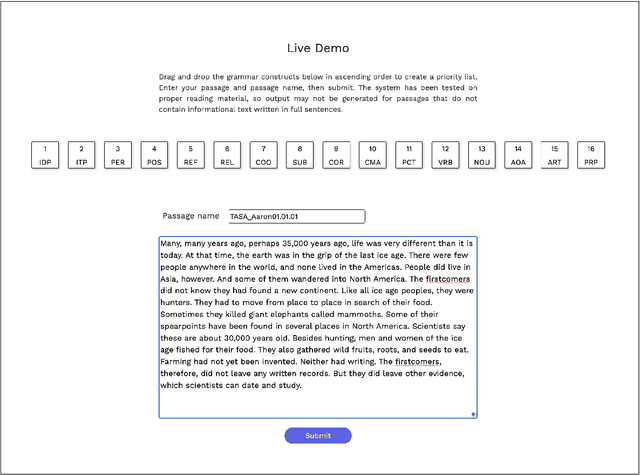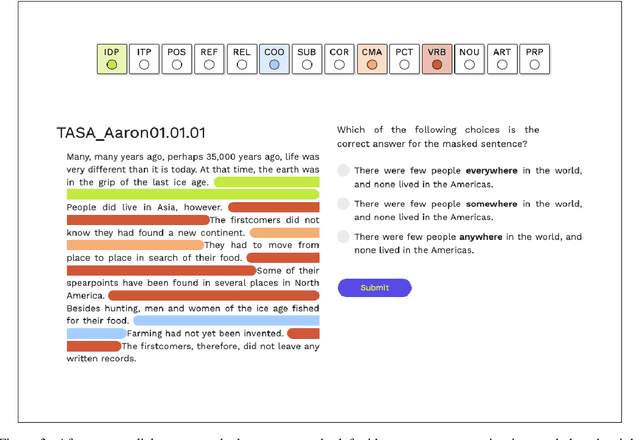Mengxuan Zhao
Controlled Language Generation for Language Learning Items
Nov 28, 2022



Abstract:This work aims to employ natural language generation (NLG) to rapidly generate items for English language learning applications: this requires both language models capable of generating fluent, high-quality English, and to control the output of the generation to match the requirements of the relevant items. We experiment with deep pretrained models for this task, developing novel methods for controlling items for factors relevant in language learning: diverse sentences for different proficiency levels and argument structure to test grammar. Human evaluation demonstrates high grammatically scores for all models (3.4 and above out of 4), and higher length (24%) and complexity (9%) over the baseline for the advanced proficiency model. Our results show that we can achieve strong performance while adding additional control to ensure diverse, tailored content for individual users.
AGReE: A system for generating Automated Grammar Reading Exercises
Nov 03, 2022



Abstract:We describe the AGReE system, which takes user-submitted passages as input and automatically generates grammar practice exercises that can be completed while reading. Multiple-choice practice items are generated for a variety of different grammar constructs: punctuation, articles, conjunctions, pronouns, prepositions, verbs, and nouns. We also conducted a large-scale human evaluation with around 4,500 multiple-choice practice items. We notice for 95% of items, a majority of raters out of five were able to identify the correct answer and for 85% of cases, raters agree that there is only one correct answer among the choices. Finally, the error analysis shows that raters made the most mistakes for punctuation and conjunctions.
 Add to Chrome
Add to Chrome Add to Firefox
Add to Firefox Add to Edge
Add to Edge